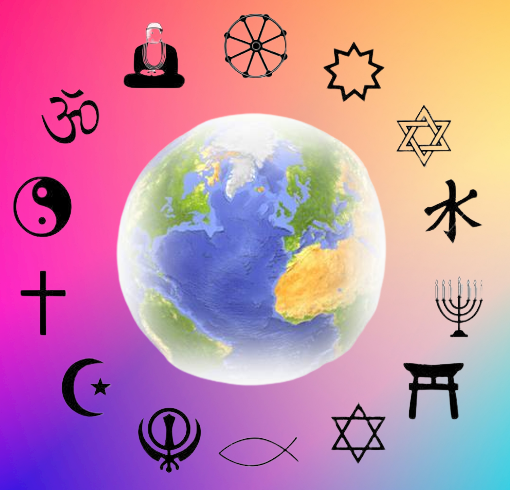
- The world must endeavour to dissociate religion from war, distrust, and ego to genuinely uphold its dignity while concurrently securing peace and prosperity for all.
- In such a world, nuclear arsenals and lethal weapons would become superfluous, and humanity could unite to collectively achieve a common vision.
- It is imperative to acknowledge the similarities among our diverse cultures and envisage a world where differences are respected, and everyone collaborates to safeguard the environment and one another.
A “system of faith and worship” has long been our way of defining religion. Over the course of history, religion has played a pivotal role in shaping human identity. It teaches us to hold in reverence higher powers, share our beliefs, and defend our faith with ethical principles. How we understand and interpret the teachings of our deities significantly influences the development of religion, its rituals, and its means of spreading. However, it’s essential to explore the tangible benefits that religion offers in our real world and contemplate how we can genuinely preserve its core values.
To begin, it’s crucial to distinguish between culture and religion. Religion revolves around faith, whereas culture imparts a moral perspective, encouraging values like compassion. Regrettably, in our contemporary world, religion is sometimes exploited for personal gain, often at the cost of others. This misuse can incite conflicts, jeopardizing countless lives and diverting our focus from pressing global challenges.
These issues frequently commence with the manipulation and stigmatization of the religious practices of specific groups, labelling them as unholy or malevolent, ultimately undermining their faith. This frequently leads to confrontations between followers of different religions, all striving to safeguard their unique identities and cultures. These tensions can escalate into communal violence, acts of terrorism, and more. A pertinent historical example is the partition of India and Pakistan, during which leaders resorted to religious riots and lent support to extremist groups, thereby paving the way for enduring conflicts along the Indo-Pakistan border.
Political figures worldwide have also resorted to exploiting religion to secure votes. For instance, in the United States, the Democratic Party has harnessed immigration issues to secure future support. In the Middle East, leaders like Iranian President Raesi and Turkish President Recep Tayyip Erdoğan have encouraged violent movements in response to perceived insults to Islam, such as French President Emmanuel Macron’s efforts to combat Islamic radicalism. Similarly, movements like the farmer protests in India and the Black Lives Matter movement in the United States have been manipulated by radicals and politicians for their own gains, often leading to unfulfilled promises.
Even the minds of children have not been immune to the influence of religious differences, resulting in bullying based on beliefs, race, caste, and more. Extremist groups like ISIS, Al Qaeda, and Hamas claim to protect Islam but have tragically associated violence with the religion, leading to the loss of innocent lives and perpetuating harmful stereotypes. In the context of COVID-19 vaccines, some Islamic countries refused them due to concerns about animal components, illustrating how religious institutions have sometimes placed politics ahead of people’s well-being.
Ultimately, we live in a world deeply divided along religious lines, often overlooking pressing global issues like climate change, the pandemic, and poverty. Nonetheless, numerous individuals are diligently working to bridge these divides and address these formidable challenges. Religion, at its core, embodies faith. However, what truly matters is the positivity and strength we derive from it to enhance the well-being of our world. It’s imperative to acknowledge the similarities among our diverse cultures and envisage a world where differences are respected, and everyone collaborates to safeguard the environment and one another.
We must endeavour to dissociate religion from war, distrust, and ego to genuinely uphold its dignity while concurrently securing peace and prosperity for all. In such a world, nuclear arsenals and lethal weapons would become superfluous, and humanity could unite to collectively achieve a common vision.
(Views expressed are the author’s own)
